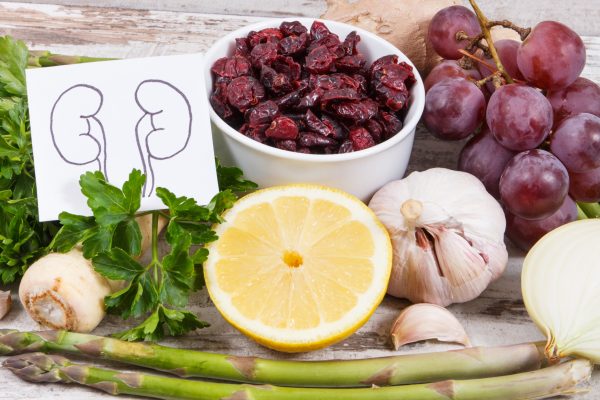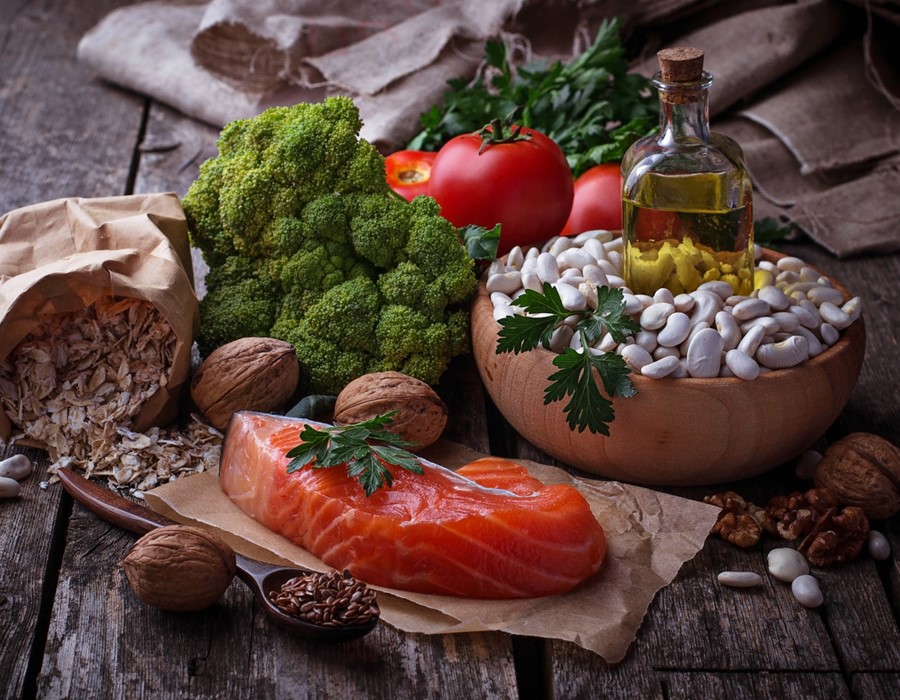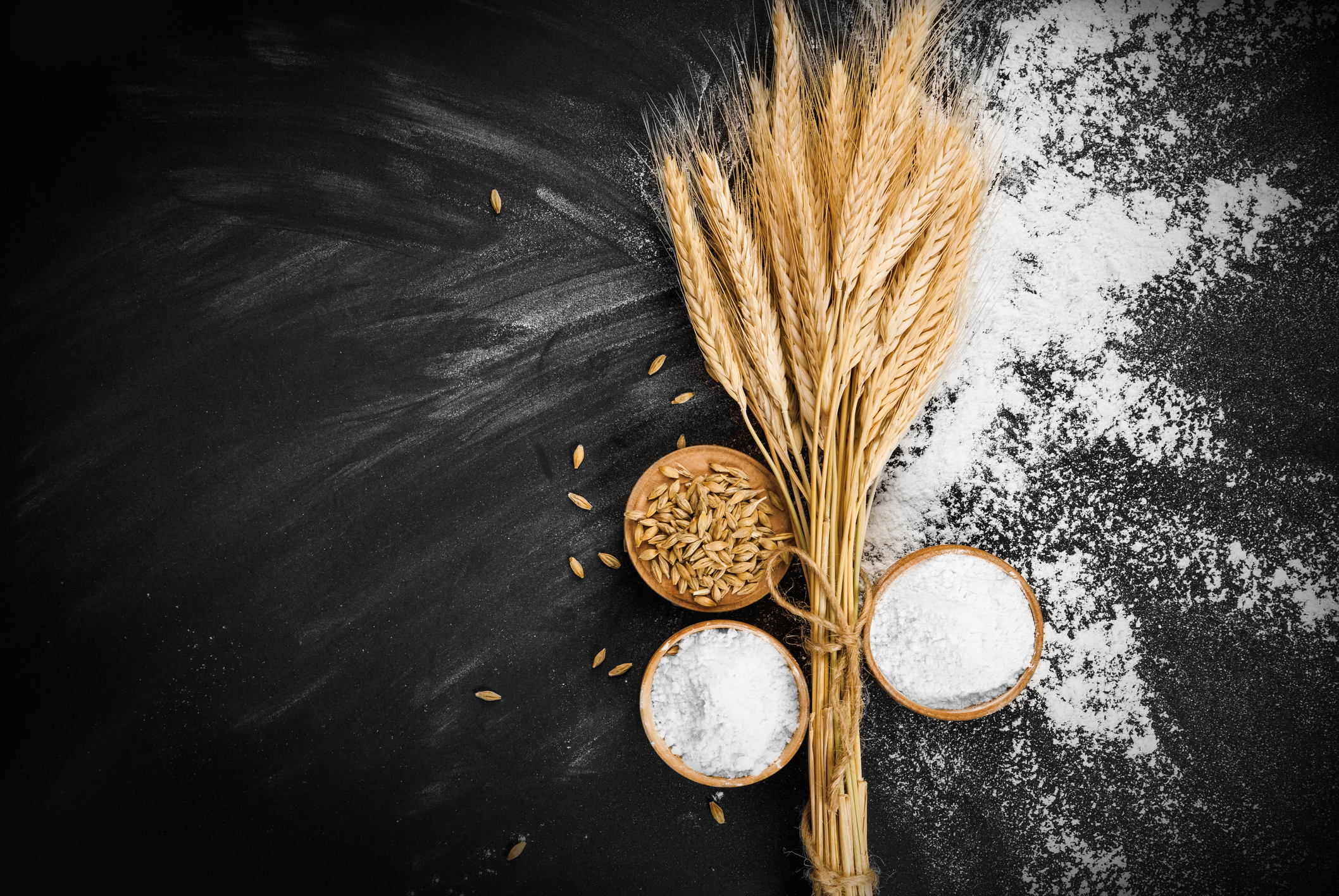





10 Super Foods For People With Diabetic Kidney Disease


Diabetic Kidney Disease (DKD), also commonly referred to as diabetic nephropathy, is a severe health complication that has a significant impact on the lives of countless individuals across the globe. This condition is a direct consequence of diabetes, a chronic disease characterized by high blood sugar levels over a prolonged period. When diabetes is not effectively controlled, it can lead to a myriad of complications, one of the most serious being kidney disease.
But with diet we can control it. Let’s explore the top 10 super foods for people with diabetic kidney disease. DKD is a condition where the kidneys, over time, become less efficient at performing their primary function - filtering waste and excess water from the blood to produce urine. In the worst-case scenario, this can progress to kidney failure, a life-threatening condition that requires either dialysis or a kidney transplant.
The prevalence of this disease and its potential to drastically alter the quality of life underscores the importance of effective management strategies. One of the most potent tools in our arsenal to combat and manage Diabetic Kidney Disease is diet. The food we consume plays a pivotal role in our overall health, and this is particularly true for individuals with DKD.
A carefully planned and balanced diet can help manage blood sugar levels, control blood pressure, and slow down the progression of kidney damage, all of which are crucial in managing DKD. In this article, we aim to shed light on the top 10 superfoods that can be beneficial for individuals grappling with Diabetic Kidney Disease.
These foods, rich in essential nutrients and antioxidants, can help manage the condition and even enhance overall health. By incorporating these superfoods into their diet, individuals with DKD can take a proactive step towards better health and improved quality of life.
Understanding the Diabetic Kidney Disease Diet
When it comes to managing diabetic kidney disease, understanding the role of diet is paramount. The food we consume has a direct impact on our overall health, and this is particularly true for individuals with chronic conditions such as diabetic kidney disease. The diet for a person with diabetic kidney disease is not just about restricting certain foods; it's about embracing a lifestyle that promotes kidney health and overall well-being.
The primary objective of the diabetic kidney disease diet is to help manage blood sugar levels. High blood sugar levels, a common issue in people with diabetes, can cause significant damage to various organs in the body, including the kidneys. Over time, this can lead to diabetic kidney disease.
Therefore, maintaining optimal blood sugar levels is a critical aspect of managing this condition. This involves consuming a balanced diet that is rich in fiber and low in simple sugars, which can cause blood sugar spikes. Another key aspect of the diabetic kidney disease diet is the reduction of high blood pressure. Hypertension, or high blood pressure, is a common issue in individuals with kidney disease.
High blood pressure can put additional strain on the kidneys, exacerbating the condition. Therefore, a diet for people with diabetic kidney disease often involves limiting the intake of sodium, which is known to increase blood pressure. This means avoiding processed foods that are typically high in sodium and using herbs and spices for flavoring instead of salt. The diet also aims to slow down the progression of kidney disease.
This involves limiting the intake of certain nutrients like protein, phosphorus, and potassium, which can be hard on the kidneys when consumed in excess. However, it's important to note that these dietary restrictions should be personalized based on the individual's health condition and the stage of their kidney disease.
Given the complexity of the diabetic kidney disease diet, it's crucial to consult with a healthcare professional or a dietitian. These professionals can provide personalized advice based on your health condition, lifestyle, and dietary preferences. They can help you understand which foods to eat and which to avoid, how to read food labels, and how to make healthy swaps in your diet. They can also provide guidance on portion sizes, meal planning, and other aspects of dietary management.
10 Super Foods for Diabetic Kidney Disease

Super Foods For People With Diabetic Kidney Disease
BlueBerries
Blueberries, often referred to as a superfood, hold a significant place in the dietary regimen of individuals dealing with diabetic kidney disease. These small, round, and predominantly purple berries are a powerhouse of antioxidants, which play a pivotal role in maintaining both heart and kidney health.
Antioxidants are substances that help prevent or slow down cell damage caused by free radicals, unstable molecules that the body produces as a reaction to environmental and other pressures. In the context of diabetic kidney disease, antioxidants can help mitigate the oxidative stress that often exacerbates the condition.
Blueberries are particularly rich in a group of antioxidants known as anthocyanins, which give the berries their distinctive color. Anthocyanins have been linked to numerous health benefits, including improved kidney health and enhanced heart function.
Moreover, blueberries are low in potassium and phosphorus, two minerals that need to be monitored closely in patients with kidney disease. High levels of potassium in the blood can lead to dangerous heart rhythm problems and sudden cardiac death. Phosphorus, while essential for bone health, can cause damage to the body when levels are too high, particularly in individuals with kidney disease.
The kidneys are responsible for removing excess phosphorus from the blood, so when their function is impaired, phosphorus can accumulate. Therefore, the low potassium and phosphorus content in blueberries makes them an excellent dietary choice for individuals with diabetic kidney disease. They can enjoy these berries without the worry of exacerbating their condition, while also reaping the benefits of the powerful antioxidants they contain.
Fish
Incorporating fish into your diet can be a game-changer when it comes to managing diabetic kidney disease. Fish, especially fatty varieties like salmon, mackerel, and sardines, are a treasure trove of nutritional benefits that can significantly aid in the fight against this condition.
One of the primary advantages of these types of fish is their high content of omega-3 fatty acids. Omega-3s are a type of polyunsaturated fat that our bodies cannot produce on their own, making it essential to obtain them from our diet. These fatty acids are known for their potent anti-inflammatory properties, which can help reduce inflammation in the body, a common issue in people with diabetes. Inflammation can exacerbate kidney damage in people with diabetic kidney disease.
By reducing inflammation, omega-3 fatty acids can help protect the kidneys from further damage, slowing the progression of the disease. This makes fatty fish an excellent dietary choice for those looking to manage their diabetic kidney disease effectively. Moreover, omega-3 fatty acids are known to help lower blood pressure.
High blood pressure or hypertension is a common complication in people with diabetes and can put extra strain on the kidneys, causing further damage. By helping to control blood pressure, the omega-3s in fish can further contribute to kidney health. Incorporating fish into your diet doesn't have to be complicated.
Grilled salmon with a squeeze of fresh lemon, a mackerel salad, or sardines on whole-grain toast are just a few simple ways to start. Remember, it's always best to opt for fresh fish over processed or fried versions to avoid excess sodium and unhealthy fats.
Olive Oil
Olive oil, a staple in Mediterranean cuisine, is not just a simple cooking ingredient. It's a powerhouse of nutrients that can significantly contribute to the health of individuals, especially those managing conditions like diabetic kidney disease. Olive oil is a healthy source of fat, primarily monounsaturated fat, known as oleic acid.
This type of fat is known for its heart-healthy benefits, including reducing the levels of 'bad' LDL cholesterol and increasing 'good' HDL cholesterol. But the benefits of oleic acid extend beyond just heart health. It's also an anti-inflammatory fatty acid, which is crucial for individuals with diabetic kidney disease. Inflammation is often a common issue in diabetes and can contribute to kidney damage.
By incorporating olive oil into your diet, you can help combat this inflammation, protecting your kidneys in the process. But the benefits of olive oil don't stop at oleic acid. It's also rich in polyphenols, potent antioxidant compounds that play a significant role in preventing inflammation and oxidation. Oxidative stress is a major contributor to the progression of kidney disease.
Antioxidants like the ones found in olive oil neutralize harmful free radicals in the body, reducing oxidative stress and potentially slowing the progression of kidney disease.Incorporating olive oil into your diet can be simple and delicious.
Use it as a dressing for salads, a base for sautéing vegetables, or even as a healthier alternative to butter on whole grain bread. You can also use it in marinades or sauces for meat, fish, or poultry. Remember, while olive oil is healthy, it's also high in calories, so moderation is key.
Cabbage
Cabbage might not be the first food that comes to mind when you think of superfoods, but it's time to give this versatile vegetable the recognition it deserves. Cabbage is a kidney-friendly superfood that's packed with a variety of essential nutrients. One of the standout nutrients in cabbage is vitamin K. This vitamin is crucial for blood clotting and can help prevent excessive bleeding.
It's also high in vitamin C, a potent antioxidant that can protect the kidneys from damage by neutralizing harmful free radicals. Cabbage is also a good source of vitamin B6 and folic acid. Vitamin B6 plays a vital role in brain development and function, and helps the body make the hormones serotonin and norepinephrine, which influence mood, and melatonin, which helps regulate the body's clock.
Folic acid, on the other hand, is essential for making red and white blood cells in the bone marrow, converting carbohydrates into energy, and producing DNA and RNA. What makes cabbage a great choice for those with kidney disease is its low potassium content.
High levels of potassium can be harmful to individuals with kidney disease, as their kidneys may not be able to remove excess potassium from the blood.
Incorporating cabbage into your diet can be as simple as adding it to your salads or using it in stir-fries. It can also be fermented to make sauerkraut, which provides the added benefit of probiotics for gut health. You can also stuff cabbage leaves with a variety of fillings to make a nutritious and kidney-friendly meal.
SugarMD Advance Glucose Support
Maintaining healthy blood sugar levels can be a challenge. From carby meals to snacks and even with all the effort, it’s still not enough. That’s where SugarMD Advanced Glucose Support comes in.
Our blend of traditional Ayurvedic herbs helps regulate blood sugar levels, curbs cravings, supports weight loss, boosts metabolism and energy. Endorsed by endocrinologists, this unique formula of pure, potent herbs promotes overall blood sugar health. Ideal for both pre-diabetics and Type 2 diabetics.
Bell peppers
With their vibrant colors and crunchy texture, these are not just a feast for the eyes and palate, but also a boon for those managing diabetic kidney disease. These versatile vegetables are packed with an array of nutrients that can contribute to overall health and specifically aid in the management of diabetic kidney disease.
Bell peppers are notably low in potassium, a mineral that needs to be carefully monitored in a kidney-friendly diet. High levels of potassium in the blood can be harmful to those with kidney disease, making bell peppers an excellent choice for those looking to keep their potassium intake in check. But the benefits of bell peppers don't stop at their low potassium content.
They are also rich in vitamins A, C, and B6. Vitamin A plays a crucial role in maintaining healthy vision, supporting the immune system, and promoting cell growth. Vitamin C, a potent antioxidant, aids in protecting the body against harmful free radicals, supports immune function, and enhances iron absorption. Vitamin B6 is essential for brain development and function and helps the body convert food into energy. Moreover, bell peppers are a good source of dietary fiber.
Fiber aids in digestion, helps control blood sugar levels, aids in achieving a healthy weight, and can lower cholesterol levels. Bell peppers also contain lycopene, a powerful antioxidant that gives certain fruits and vegetables their red color.
Research suggests that lycopene may help reduce the risk of certain types of cancer, protect the heart, and, importantly for those with diabetic kidney disease, help protect the kidneys. Incorporating bell peppers into your diet can be as simple as adding them to salads, stir-fries, or stuffing them with a healthy filling and baking them. They can also be grilled, roasted, or eaten raw as a crunchy snack.
Garlic
Garlic, a staple in many kitchens, is renowned for its ability to transform the flavor profile of a dish. But beyond its culinary appeal, garlic offers significant health benefits, particularly for those managing diabetic kidney disease. One of the key advantages of using garlic in cooking is its ability to provide incredible flavor without adding extra sodium.
A diet high in sodium can lead to high blood pressure, a risk factor for kidney disease. By using garlic, you can reduce your sodium intake without sacrificing taste. Garlic is also known for its antioxidant properties. Antioxidants help protect the body's cells from damage by free radicals, unstable molecules that can cause oxidative stress.
This is particularly important for those with diabetic kidney disease, as oxidative stress can contribute to the progression of the disease. In addition to its antioxidant properties, garlic has anti-inflammatory effects. Chronic inflammation can lead to various health problems, including heart disease and cancer.
By helping to reduce inflammation, garlic can play a role in managing diabetic kidney disease and promoting overall health. Incorporating garlic into your diet can be as simple as adding minced garlic to your favorite recipes. You can also roast garlic and spread it on whole-grain bread, add it to salad dressings, or use it to flavor soups and stews.
Onions
A staple in many kitchens around the world, onions are more than just a flavor-enhancer. They are a nutritional powerhouse, especially beneficial for those managing diabetic kidney disease. Onions are an excellent source of several essential nutrients. They are rich in vitamin C, a potent antioxidant that helps protect our cells from damage.
This vitamin also aids in the production of collagen, a protein that helps maintain the health of our skin, blood vessels, and even our kidneys. In addition to vitamin C, onions are a good source of manganese. This often-overlooked mineral plays a crucial role in many bodily functions, including nutrient metabolism, bone development, and reducing oxidative stress.
For individuals with diabetic kidney disease, maintaining a balanced intake of essential minerals like manganese is vital, and onions provide a kidney-friendly source. Perhaps one of the most significant benefits of onions for those with diabetic kidney disease is their high content of prebiotic fiber. Prebiotics are a type of dietary fiber that feed the beneficial bacteria in our gut.
A healthy gut microbiome is increasingly recognized as a key factor in overall health, including kidney health. By including onions in your diet, you're not only adding flavor to your meals but also supporting your gut health, which in turn can have positive effects on your kidney function.
Incorporating onions into your diet can be as simple as adding them to your salads, stir-fries, or soups. They can be eaten raw, cooked, or caramelized to bring out their natural sweetness. Remember, while onions are beneficial, they should be consumed as part of a balanced diet, alongside other kidney-friendly foods.
Apples
Apples are often associated with good health, and for a good reason. They are packed with nutrients and offer several health benefits, particularly for individuals with diabetic kidney disease. One of the standout features of apples is their high fiber content. Dietary fiber is essential for maintaining a healthy digestive system, and it can help prevent constipation, a common issue for individuals with kidney disease.
Moreover, fiber can help control blood sugar levels, a crucial factor for those with diabetes. Apples are also rich in anti-inflammatory compounds. Chronic inflammation is a common issue in people with diabetic kidney disease, and consuming foods rich in anti-inflammatory compounds can help manage this. These compounds, along with the high fiber content in apples, can also help reduce cholesterol levels, providing a protective effect against heart disease, a common complication in people with kidney disease.
Incorporating apples into your diet can be as easy as having one as a snack between meals. They can also be included in salads, baked goods, or even cooked into a savory dish. For a kidney-friendly dessert, try baking an apple with a sprinkle of cinnamon. As with any food, apples should be consumed as part of a balanced diet.
Egg whites
These are a remarkable food item that can play a significant role in managing diabetic kidney disease. They are pure protein, providing the highest quality of protein with all the essential amino acids. This makes them an excellent choice for individuals who need to maintain their protein intake but also need to manage their kidney health. Protein is a crucial nutrient for the body.
It helps in building and repairing tissues, making hormones and enzymes, and is essential for bones, muscles, cartilage, skin, and blood. However, for people with diabetic kidney disease, not all protein sources are created equal. Some proteins, especially those from certain meats and dairy products, come with high levels of phosphorus, which can be harmful to kidneys.
This is where egg whites come into the picture. Egg whites are unique because they provide high-quality protein with significantly less phosphorus than other protein sources like egg yolk or meats. This makes them a kidney-friendly protein source. They are also low in potassium, another mineral that needs to be monitored in a kidney diet. Incorporating egg whites into your diet can be done in various ways.
They can be used in making omelets or scrambled eggs for breakfast. You can also use them in baking or to make a protein-packed smoothie. Remember, while egg whites are a great source of protein, it's important to consume them as part of a balanced diet.
Red Grapes
Red grapes are more than just a tasty snack. They are a powerhouse of nutrition, offering a multitude of health benefits, especially for people with diabetic kidney disease. They are high in vitamin C, a potent antioxidant that helps protect the body's cells from damage. Vitamin C also aids in the absorption of iron and promotes wound healing. But the nutritional benefits of red grapes don't stop at vitamin C.
They also contain antioxidants called flavonoids, which have been shown to reduce inflammation. Inflammation is a common issue in people with diabetic kidney disease, and consuming foods that can combat inflammation can be beneficial. Flavonoids in red grapes, such as resveratrol, have been studied for their potential to improve heart health and blood sugar control, both of which are important for people with diabetic kidney disease.
Resveratrol is found in the skin of red grapes and is thought to have several health benefits, including anti-inflammatory and blood clot-preventing properties. Incorporating red grapes into your diet can be a delightful experience. They can be eaten as a refreshing snack on their own or added to fruit salads. They can also be included in smoothies for a nutritional boost or used as a topping for yogurt or cereal.
You can even freeze them for a cool summer treat. Remember, while red grapes offer many health benefits, they should be consumed as part of a balanced diet. It's also important to wash them thoroughly before eating to remove any pesticides or residues.
Foods to Avoid with Diabetic Kidney Disease
While it's important to know which food is good for diabetic and kidney patients, it's equally crucial to know the foods to avoid. These include high sodium foods, processed meats, and foods high in potassium and phosphorus like bananas, tomatoes, potatoes, and dairy products.
Conclusion
Managing diabetic kidney disease involves careful dietary considerations. The superfoods listed above can help manage the condition and promote overall health. However, it's important to remember that everyone's body responds differently to different types of foods.
To support your journey towards better kidney health, explore these carefully curated products designed to complement a diabetic-friendly diet. Our Kidney Support supplement is formulated specifically to enhance kidney function, while Milk Thistle offers powerful liver and kidney support. Additionally, our Balanced Veggies Blend ensures you get essential nutrients that promote overall kidney health. Incorporating these into your routine could make a positive impact on managing diabetic kidney disease.
Therefore, it's essential to consult with a healthcare professional or dietitian before making any significant changes to your diet. Remember, nutrition for diabetes and CKD is a specialized area, and your healthcare provider can give you the best advice tailored to your needs. Stay healthy, and take care of your kidneys!
About The Author
Meet Dr. Ahmet Ergin a highly skilled and dedicated endocrinologist with a passion for diabetes care. Dr. Ergin earned his medical degree with honors from Marmara University in Istanbul. He completed internal medicine residency and endocrinology fellowship at Cleveland Clinic.
Dr. Ergin is board-certified in Internal Medicine, Endocrinology, Diabetes, and Metabolism due to his vast medical expertise. He's a certified diabetes educator, author of "The Ultimate Diabetes Book," and founder of "the SugarMD YouTube channel."
Dr. Ergin offers exceptional diabetes care to his patients in Port Saint Lucie, FL, helping them manage effectively. Disclaimer: These statements have not been evaluated by the Food and Drug Administration. Information on this website isn’t intended to treat, cure or prevent any disease. Discuss with your doctor and do not self-treat.
Written By Dr. Ahmet Ergin
456 total articles
Meet Dr. Ahmet Ergin, a highly skilled and dedicated endocrinologist with a passion for diabetes care. Dr. Ergin earned his medical degree with honors from Marmara University in Istanbul. He completed internal medicine residency and endocrinology fellowship at Cleveland Clinic. Dr. Ergin is board-certified in Internal Medicine, Endocrinology, Diabetes, and Metabolism due to his vast medical expertise. He's a certified diabetes educator, author of “The Ultimate Diabetes Book,” and founder of “the SugarMD YouTube channel.” Dr. Ergin offers exceptional diabetes care to his patients in Port Saint Lucie, FL, helping them manage effectively. For a closer look into his insights and experiences, connect with Dr. Ahmet Ergin on LinkedIn, Instagram, and YouTube.”
Disclaimer: These statements have not been evaluated by the Food and Drug Administration. Information on this website isn't intended to treat, cure or prevent any disease. Discuss with your doctor and do not self-treat.
Products















